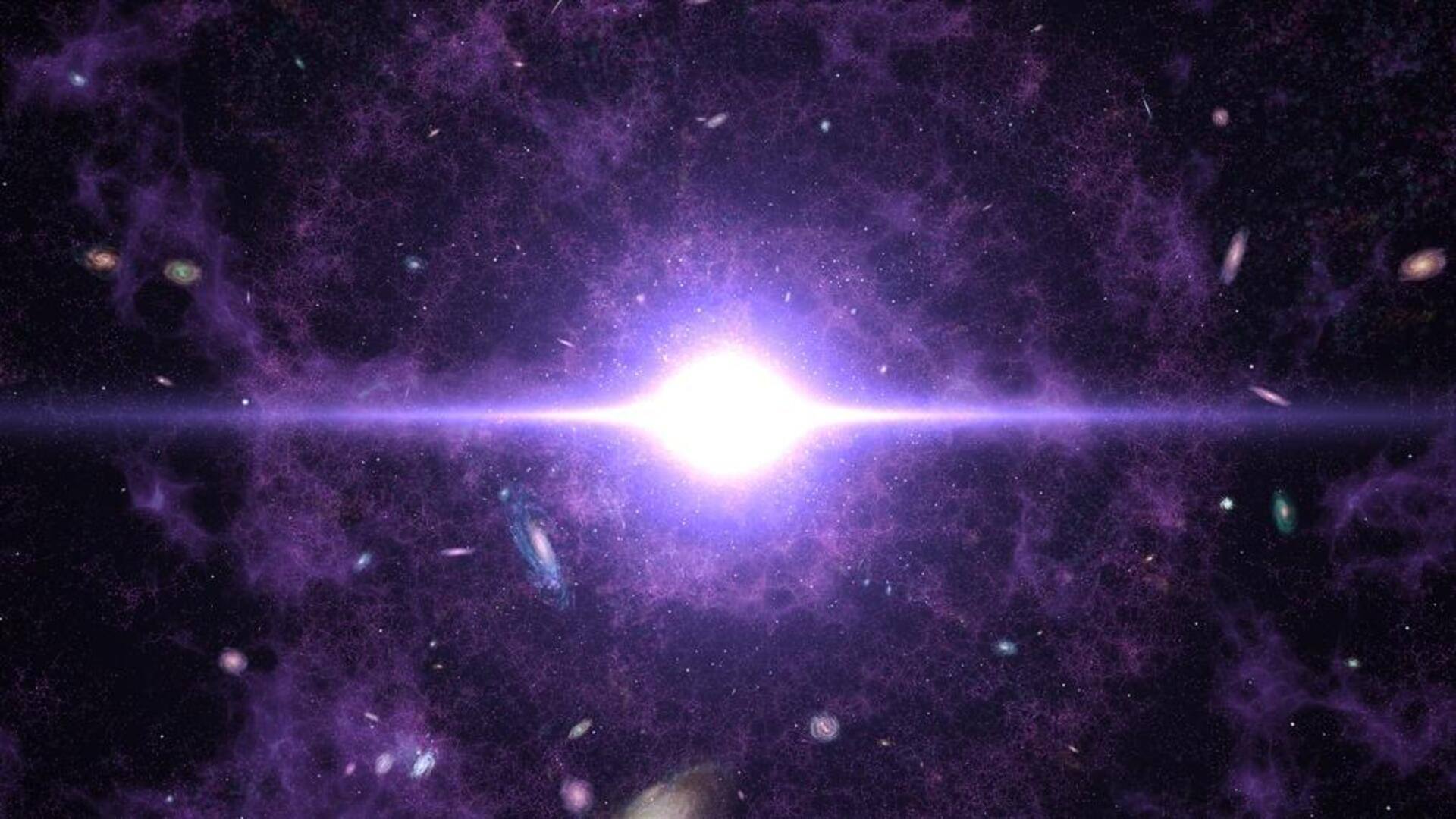
How NASA's Roman and ESA's Euclid will investigate dark energy
What's the story
European Space Agency (ESA) is on track to launch the Euclid mission on July 1 to explore mysteries of the cosmos, specifically dark energy and dark matter.
Euclid will be joined by NASA's Nancy Grace Roman Space Telescope by May 2027.
The two missions will work in tandem to unravel the cosmic mysteries, helping astronomers better understand how the universe works.
Dark energy
What is dark energy?
The universe has been expanding right from the start. Astronomers believe that the gravity of the matter in the universe will eventually weaken that expansion. However, that has not happened.
In fact, that expansion is speeding up and scientists want to know why. The cause of this acceleration is attributed to dark energy, which both Roman and Euclid will shed light on.
Euclid
Euclid will survey about a third of the sky
Euclid will survey a large portion of the sky, about 15,000 square degrees, or about a third of the sky.
It will conduct observations in both infrared and optical wavelengths of light but will provide lesser details than Roman.
Notably, Euclid will be able to look into the past 10 billion years of cosmic history when the universe was about three billion years old.
Roman
Roman can make more detailed observations than Euclid
Roman can make observations with greater precision and depth. Compared to Euclid, it will study a smaller area of about 2,000 square degrees or one-twentieth of the sky.
Roman can see much earlier into the universe when it was about two billion years old.
It will also study planets in the Milky Way galaxy and objects lying at the edge of our solar system.
Observation
Roman and Euclid will create a 3D dark matter map
Roman and Euclid will study the accumulation of matter using a technique called weak gravitational lensing, which happens because any cosmic object with mass warps the fabric of space-time.
Lesser mass like dark matter—which is believed to provide 80% of the mass of the universe—creates lesser effects.
In this way, both missions will each create a 3D dark matter map of the universe.
Details
The missions would provide crucial insights working together
These 3D maps are one of the ways scientists will investigate the universe's expansion. The gravitational attraction of dark matter holds galaxies in place, acting like cosmic glue.
Studying dark matter across different eras will help "fill in" gaps in the current understanding of cosmic expansion.
Working together, Euclid and Roman would thereby provide answers to the most fundamental questions about the universe.
Information
Roman will also investigate type Ia supernova
In addition, Roman will study a particular class of exploding stars called type Ia supernova. Scientists can estimate how far these supernovae are by measuring their brightness. Tracing these cosmic objects would provide insights into cosmic expansion, helping better understand how dark energy changes.
Official words
'The missions will open up a new era of exploration'
"Twenty-five years after its discovery, the universe's accelerated expansion remains one of the most pressing mysteries in astrophysics," said Jason Rhodes, deputy project scientist for Roman and the US science lead for Euclid.
"With these upcoming telescopes, we will measure dark energy in different ways and with far more precision than previously achievable, opening up a new era of exploration into this mystery."